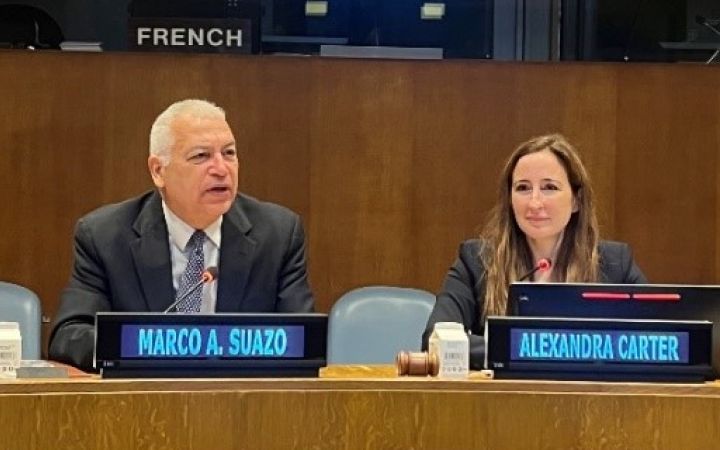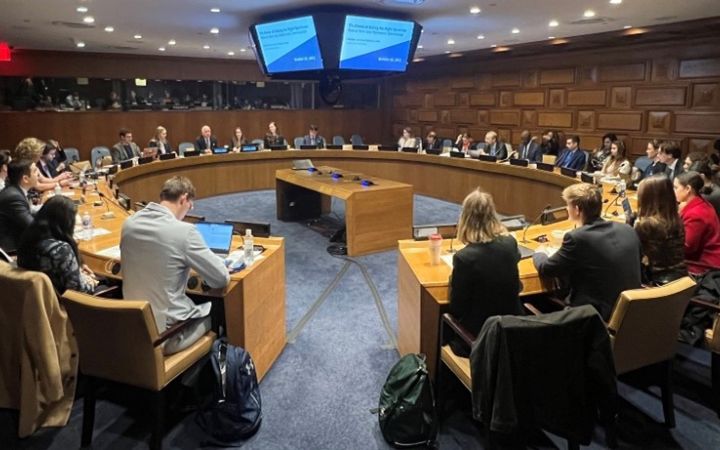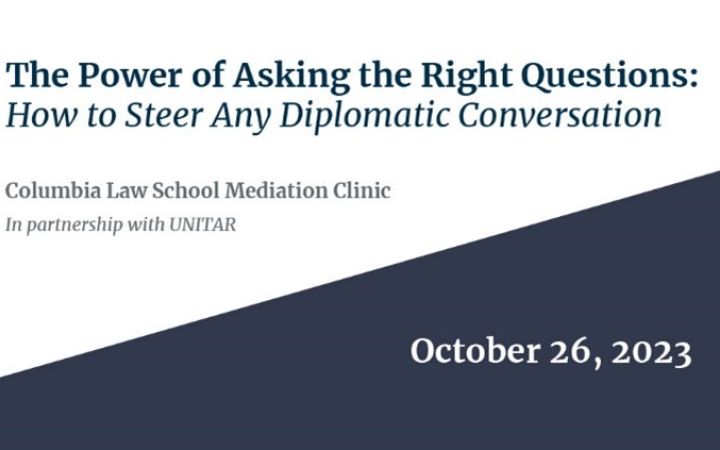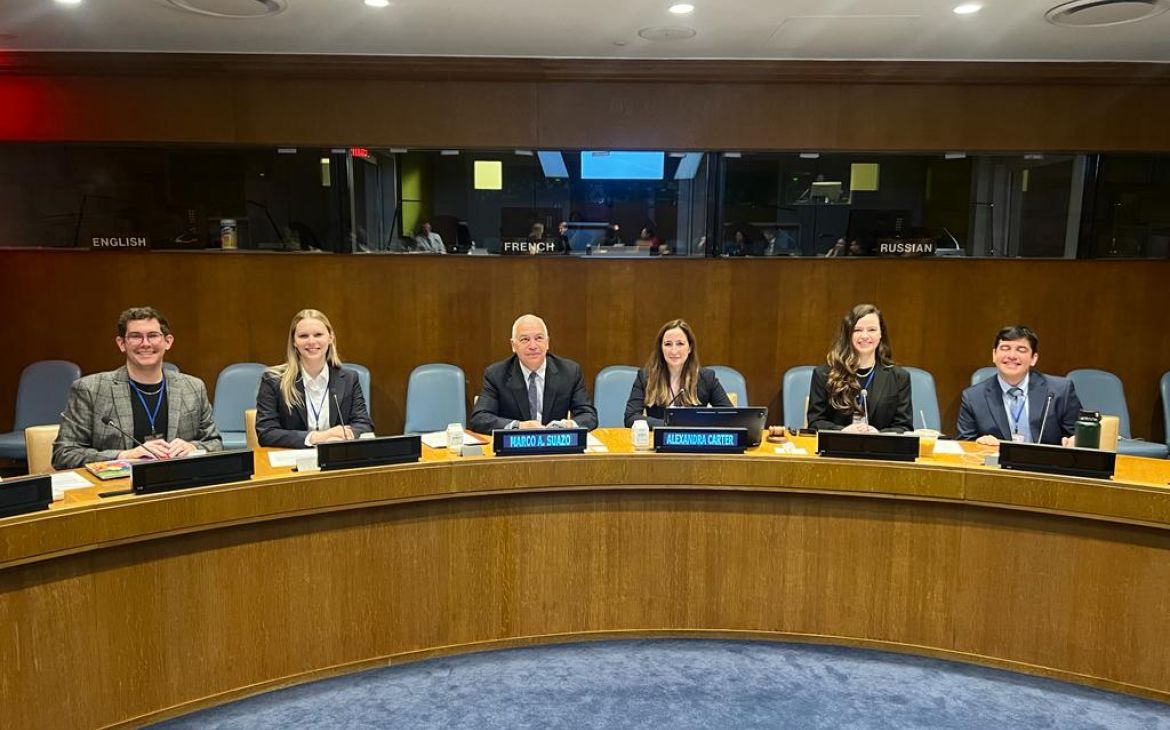"Ask for More: Master Diplomatic Advocacy Through Asking the Right Questions"
26 October 2023, New York, USA - UNITAR and Columbia Law School conducted the first session for the Fall series titled “Ask for More: Master Diplomatic Advocacy Through Asking the Right Questions”. Mr. Marco Suazo, head of UNITAR New York Office, started by welcoming our in-person and virtual audience and then introduced Professor Alexandra Carter, Director of the Mediation Clinic at Columbia Law School, and the Columbia Mediation Clinic team. Mastering diplomatic advocacy through asking the right questions is a vital skill in the realm of effective communication. The foundation of thriving relationships, whether they are personal or professional, relies on the finesse of inquiry. Questions, as the bedrock of this skill, can be a formidable instrument, serving to enhance comprehension, collect valuable insights, and nurture profound bonds. Nevertheless, the distinction lies in the art of selecting the most fitting questions, as this ability is paramount for achieving successful communication and fostering harmonious connections.
Professor Carter and the Columbia Mediation team explained that the goal of this workshop is to explore the strategic use of questions in communication, with a particular emphasis on how culture influences our questioning styles. Professor Carter and her team introduced the mirroring and window phases of negotiations. During the mirroring phase of negotiations, it is essential to engage in a dialogue with oneself. This internal negotiation is a pivotal aspect of the process, as it allows you to assess your position and readiness for the upcoming interaction. The mirror, in this context, isn’t about the physical presence or imposing demeanour, instead, it’s a tool to gauge the depth of your knowledge, which serves as your source of power. She also introduced the idea, that to effectively mirror, you should ask yourself a series of questions. Start with identifying the problem you aim to solve, and clarifying your objectives. Understanding your needs is fundamental, as it’s the first step that sets the direction for your negotiation journey. In essence, this phase underscores that all communication is a form of negotiation, and cultivating good vision, focus, and self-awareness is key to a successful outcome.
In the negotiation process, the “Window” phase represents the critical point at which you begin to explore the other party’s perspective. Just as you asked yourself questions in the “Mirror” phase, now it’s time to apply active listening and inquiry when interacting with the opposite side. By actively listening and asking specific questions, you aim to gain a deeper understanding of their needs and concerns. Start by inquiring about what they need, cutting through any unnecessary information to pinpoint the core of the problem. Then, ask them to describe their concerns, as addressing these is often the key to a mutually beneficial agreement. In the “window” phase, the focus shifts from introspection to a more outward-facing approach, fostering effective communication and creating a clearer path towards successful negotiation outcomes.
Professor Carter then introduced an activity so that the audience could practice these negotiation skills. Participants were then put into small groups of four or five and presented with a case where they had to use the mirror or the window negotiation technique.
The session ended with the Columbia Mediation Team encouraging the audience to participate in a Q&A session, as it provides an opportunity for further discussion, clarification, and learning. The workshop promised to be an engaging and informative experience for both participants joining us in person and virtually. We look forward to the next sessions of the series: “Her Seat at the Table” and “Conflict Resolutions & Mental Health” taking place on the 20th and 27th November 2023, respectively.





